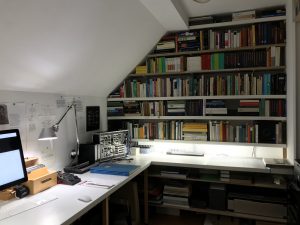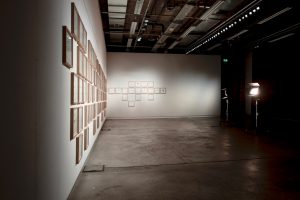A program to simulate the adult mind
The initial state of the mind, say at birth
The education to which it has been subjected
Other experience, not to be described as education, to which it has been subjected
| Turing, Alan M. (1950). Computing Machinery and Intelligence. Mind, New Series, Vol. 59, No. 236 (Oct., 1950). Oxford: Oxford University Press. S.455. |
|---|
In the process of trying to imitate an adult human mind we are bound to think a good deal about the process which has brought it to the state that it is in. We may notice three components,
(a) The initial state of the mind, say at birth,
(b) The education to which it has been subjected,
(e) Other experience, not to be described as education, to which it has been subjected
Instead of trying to produce a program to simulate the adult mind, why not rather try to produce one which simulates the child’s ? If this were then subjected to an appropriate course of education one would obtain the adult brain. Presumably the child-brain is something like a note-book as one buys it from the stationers. Rather little mechanism, and lots of blank sheets. (Mechanism and writing are from our point of view almost synonymous.) Our hope is that there is so little mechanism in the child-brain that something like it can be easily programmed. The amount of work in the education we can assume, as a first approximation, to be much the same as for the human child.


